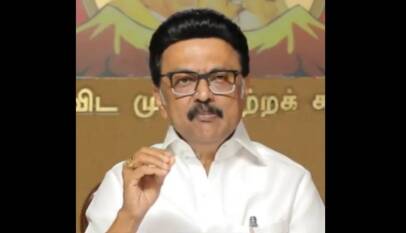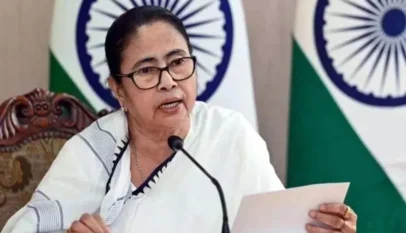Cabinet Decision – Maharashtra
Large-Scale Irrigation in Districts Affected by Farmer Suicides
Approval of the ambitious Wainganga–Nalganga river linking project; 54 lakh hectares to be irrigated
The ambitious Wainganga-Nalganga interlinking project, aimed at enriching agriculture through large-scale irrigation in districts affected by farmer suicides, was approved in a Cabinet meeting today, presided over by Chief Minister Eknath Shinde. This Rs 87,342.86 crore project will irrigate four lakh hectares, particularly benefiting drought-affected areas like Marathwada.
The project will channel water from the Wainganga in the Godavari sub-basin to the Wainganga project in Buldhana district, constructing 426.52 km of connecting canals. It will serve irrigation, drinking, and industrial needs across 15 talukas in Nagpur, Wardha, Amravati, Yavatmal, Akola, and Buldhana districts of Vidarbha. Additionally, 31 storage ponds will be built for water use during the Rabi season. The project received approval from the Central Water Commission and was included in the Integrated State Water Plan by the State Water Council.
Har Ghar Tricolor Abhiyan in the State from August 9
From August 9 to August 15, the state will implement the Har Ghar Tricolor Abhiyan on a large scale, with tricolors hoisted on two and a half crore houses and establishments, accompanied by various programs. Chief Minister Eknath Shinde presided over the Cabinet meeting where this decision was made.
The Cultural Affairs Department will act as the nodal department for rural areas, while the Urban Development Department will handle urban areas. Activities will include Tricolor Yatra, Tricolor Rally, Tricolor Pledge, Cultural Programs, Tricolor Canvas, Tricolor Tribute, Tricolor Mela, and Tricolor Selfies. The state-level inauguration will occur on August 9 at August Kranti Maidan in Mumbai, attended by the Chief Minister, Deputy Chief Minister, and Guardian Ministers in their respective districts. The tricolor will be hoisted from house to house on August 13, 14, and 15.
Approval of the Policy of Providing Flats to the Project Affected
The Cabinet approved a policy to provide flats to project-affected people, with Chief Minister Eknath Shinde presiding over the meeting. This decision aims to increase the construction of flats for project victims.
Under this policy, the Brihanmumbai Municipal Corporation, Slum Rehabilitation Authority, and MMRDA must create an action plan to develop sufficient project-affected flats over the next 15 years. They must review the need for these flats in the next 3-5 years and improve the provision and utilization of TDR generation to make the project economically viable. Additional flats created by Brihanmumbai Municipal Corporation and MHADA projects will be used for project-affected people.
The coordination committee will prioritize based on the availability of project-affected flats in Greater Mumbai. The Urban Development Department will follow up to secure government land, Mithagara land, and Mumbai Port Trust land for the project-affected flats. Developers providing these flats by amalgamating plans of various planning authorities will receive up to a 50 percent premium adjustment.
Infrastructure in Small Towns Will Accelerate; Approval to Raise Loan
The Cabinet approved funds in the form of loans to accelerate infrastructure in small towns, with Chief Minister Eknath Shinde presiding over the meeting.
Funds will be raised through the Maharashtra Urban Infrastructure Fund by borrowing from the open market. Through schemes like the Maharashtra Urban Infrastructure Development Loan Scheme, urban local self-government bodies can raise their share of funds. Ineligible civic bodies will receive loans under this scheme.
822.23 crore from the water supply project sanctioned to Chhatrapati Sambhajinagar Municipal Corporation under the Amrut-2 scheme will be prioritized for loan sanction by MUIDCL/MUIF. The government will provide advance funds if needed, to be repaid once the loan is raised. If urban local self-government bodies fail to repay the loan, the amount will be recovered from GST, finance commission subsidies, and stamp duty refunds received from the government.
Extension of Two Years for Education Eligibility Test for Primary Teachers in Tribal Division
In a cabinet meeting held today, a decision was made to extend the deadline by two years for primary teachers in the tribal division to pass the education qualification examination. Chief Minister Eknath Shinde presided over the meeting.
This special recruitment drive, conducted on December 1, 2018, targets primary teachers appointed under this scheme. After passing the examination, these teachers will receive future service benefits. Those who have already passed the Teacher Eligibility Test will also be granted the following service benefits. This extension is a one-time provision, and teachers who do not pass the examination after this extension will have their services terminated.
Difficulties in Obtaining Caste Validity Certificates for Scheduled Castes and Tribes to Be Addressed
To address difficulties in obtaining caste validity certificates for Scheduled Castes and Tribes, the Maharashtra Cabinet decided to amend the Scheduled Caste, Scheduled Tribe, Nomadic Tribe, Other Backward Classes, and Special Backward Classes (Regulation 2000 for Issuance of Caste Certificate and its Verification). Chief Minister Eknath Shinde presided over the meeting.
Currently, there is no provision for re-verifying a validity certificate issued based on incorrect information, leading to difficulties in canceling such certificates. The amendment will allow for the review of validity certificates by a committee. An Appellate Authority will also be established to handle appeals before they reach the High Court, addressing the backlog of court cases. Additionally, fines for invalid caste certificates will be increased, and filing FIRs for effective law implementation will be mandated. Provisions will be made to protect committee members from fines imposed by courts.
Fine of ₹50,000 for Cutting Trees Without Permission
The cabinet meeting today decided to levy a fine of ₹50,000 for cutting trees without permission. Chief Minister Eknath Shinde presided over the meeting. Currently, the fine is ₹1,000.
Any felled trees, along with the arms, boats, and vehicles used to transport them, will be confiscated by the government. An amendment to Section 4 of the Maharashtra Tree Felling (Regulation) Act, 1964, will be made, and an ordinance will be introduced.
Maharashtra to Implement Logistics Policy; Expected Income of ₹30,000 Crores in Five Years
The Maharashtra Logistics Policy-2024 was approved in today’s cabinet meeting, presided over by Chief Minister Eknath Shinde. Formulated based on the recommendations of the State Economic Advisory Council, this policy aims for development over the next 10 years. It is expected to create around 5 lakh direct and indirect jobs and generate an income of approximately ₹30,573 crores.
The policy aims to reduce logistics costs by 4-5 percent from the current 14-15 percent, cut logistics time, lower carbon emissions through green initiatives, and implement intelligent logistics management systems using blockchain and AI. The policy will also promote green logistics parks, sustainable design, and modal shift, while attracting domestic and foreign investment to make Maharashtra a world-class logistics hub. The Maharashtra Maritime Board, Jawaharlal Nehru Port Authority, Mumbai Port Trust, State Road Development Corporation, MMRDA, CIDCO, and Maharashtra Airport Development Company have all contributed to this policy.
Under this policy, dedicated logistics infrastructure will be developed over more than 10,000 acres by 2029. An International Mega Logistics Hub will be developed on 2,000 acres in the Navi Mumbai-Pune area near the new International Airport at Panvel. This area, attached to industrial estates like Taloja, Patalganga, Rasayne, Khopoli, Mahad, Roha, Chakan, and Talegaon, will become a major center for international trade and industry, with ₹1,500 crores allocated for its development.
A National Mega Logistics Hub will be established on 1,500 acres in the Nagpur-Wardha area, connected to the Hindu Hrudayasmrat Balasaheb Thackeray Maharashtra Samriddhi Highway. Nagpur’s central geographic location in the country makes it ideal for a logistics hub, with four national expressways and a dedicated freight corridor under development. This hub will also receive ₹1,500 crores for its development.
State Logistics Hub
The State Logistics Hub will provide logistics facilities at five locations: Chhatrapati Sambhaji Nagar-Jalna, Thane-Bhiwandi, Ratnagiri-Sindhudurg, Pune-Purandar, and Palghar-Kargaan, each covering 500 acres. A total of ₹2,500 crores will be allocated for these five hubs.
Regional Logistics Hub: Regional hubs will be established on 300 acres each at five locations: Nanded-Degalur, Amravati-Badnera, Kolhapur-Ichalkaranji, Nashik-Sinnar, and Dhule-Shirpur. A budget of ₹1,500 crores will be allocated for the development of these five regional logistics hubs.
District Logistics Nodes: Twenty-five District Logistics Nodes will be created based on an analysis of each district’s basic capacity, inherent business opportunities, and centers of economic development grounded in traditional skills. In each district, 2 to 3 locations covering a total area of 100 acres will connect major industrial, trade, and business areas under a hub-and-spoke model. Additionally, 15% of the MIDC area in each district will be reserved for private sector logistics nodes.
Furthermore, financial incentives and subsidies will be provided for logistics park developers in the state. The policy outlines capital subsidies for eligible logistics parks as follows:
- Small Logistics Park: 20% capital subsidy for investments of at least ₹10 crores on a minimum of 5 acres.
- Large Logistics Park: 15% capital subsidy for investments of at least ₹100 crores on a minimum of 50 acres.
- Vishal Logistics Park: 15% capital subsidy for investments of at least ₹200 crores on a minimum of 100 acres.
- Super Large Logistics Park: 10% capital subsidy for investments of at least ₹400 crores on a minimum of 200 acres.
All these logistics parks will receive electricity at industrial rates, critical industrial infrastructure support, and green logistics support.
Small, large, mega, and multi-storied logistics parks in Zones I, II, and III will be granted industry and infrastructure status for logistics components, ground coverage relaxation, zone restrictions relaxation, height restrictions relaxation, 24×7 operations, expertise and assistance for entrepreneurship development, and non-financial incentives like a single window system and ease of doing business.
Multi-Purpose Logistics Park: Areas with a built-up area of at least 20,000 sq. ft. in urban/semi-urban regions will be designated as “Multi-Storied Logistics Parks” with a minimum investment of ₹5 crores. Due to the availability of open space in metropolitan cities like Thane, Mumbai, and Pune, multi-purpose logistics parks are proposed for maximum space utilization.
Each district will have MSME storage and cargo handling units, both within and outside logistics parks, receiving financial incentives such as stamp duty concession, interest subsidy, industrial rate electricity, technology upgradation assistance, and ease of doing business. Non-financial incentives will include industry and infrastructure sector status, ground coverage relaxation, zone restrictions relaxation, height restrictions relaxation, 24×7 operations, assistance for skill and entrepreneurship development, and a single window system for ease of doing business.
MSMEs in the logistics sector (with an investment limit of ₹50 crores excluding land cost) are exempt from prior approvals. Necessary facilities will be provided by the state government to overcome any hurdles.
College of Ayurveda at Kagal and College of Yoga and Naturopathy at Azra Taluka
The decision to establish an Ayurveda college at Kagal in Kolhapur district and a yoga and naturopathy college at Uttur in Azra Taluka was made in a cabinet meeting held today. Chief Minister Eknath Shinde presided over the meeting.
The Kolhapur Collectorate will provide necessary space for setting up an Ayurveda College with a capacity of 100 students and an Ayurveda Hospital with the same number of beds at Kagal. This project will cost ₹487 crore 10 lakhs.
A new government yoga and naturopathy degree college with a capacity of 60 students and a hospital with the same number of beds will be started at Uttur. The Kolhapur District Collector will also provide free space for this project, which will cost ₹182 crore 35 lakhs.
Post-Retirement Housekeeping and Chauffeur Services for Judges
In the cabinet meeting held today, it was decided to provide post-retirement benefits such as domestic help and chauffeur services to judges after their retirement. Chief Minister Eknath Shinde presided over the meeting.
These benefits are extended to retired Chief Justices and other judges of the Bombay High Court or to their spouses after their death. This benefit was also approved for surviving spouses of judges who served at the Bombay High Court but retired from other state high courts.
Stamp Duty Waived for Sena Kalyan Educational Institution and Radha Kalyanadas Daryanani Trust
In today’s Cabinet meeting, a decision was made to grant 100 percent stamp duty exemption to the Sena Kalyan Educational Institution and the Radha Kalyanadas Daryanani Charitable Trust. Chief Minister Eknath Shinde presided over the meeting.
This decision will benefit the Radha Kalyanadas Daryanani Charitable Trust in Kanhe, located in Maval Taluka of Pune district, and the Army Welfare Education Society. The Southern Command Headquarters of the Army Welfare Society will acquire land for the expansion of the Army Law College. This decision was taken in the public interest.
Financial Assistance to Adivasi Hirda Industrial Co-operative Society of Junnar
A decision to provide financial assistance to the Kukdeswar Tribal Hirda Industrial Co-operative Society in Junnar was made in the Cabinet meeting held today. Chief Minister Eknath Shinde presided over the meeting.
The society will receive ₹2 crores as a one-time financial assistance. This funding will enable the institution to repay the loan amount taken from NABARD.
Approval for Establishment of Minority Research and Training Institute
A decision was taken in today’s Cabinet meeting to establish a Minority Research and Training Institute (MRTI) to promote the overall development of minority communities in the state by addressing their backwardness. Chief Minister Eknath Shinde presided over the meeting.
The establishment of MRTI is modeled after institutions like Barti, Sarathi, Mahajyoti, and Amrit. A total of 11 posts will be created for this organization, and the cabinet has approved a total expenditure for its establishment.
The minority communities in the state include Muslims, Jains, Buddhists, Christians, Jews, Sikhs, and Parsis. This institute will study issues related to their social, educational, and economic development.
RCB Clinch WPL 2026 Title with Record-Breaking Run Chase Against Delhi Capitals
Vadodara, Feb 2026 : Royal Challengers Bangalore (RCB) were crowned champions of the Women…




















